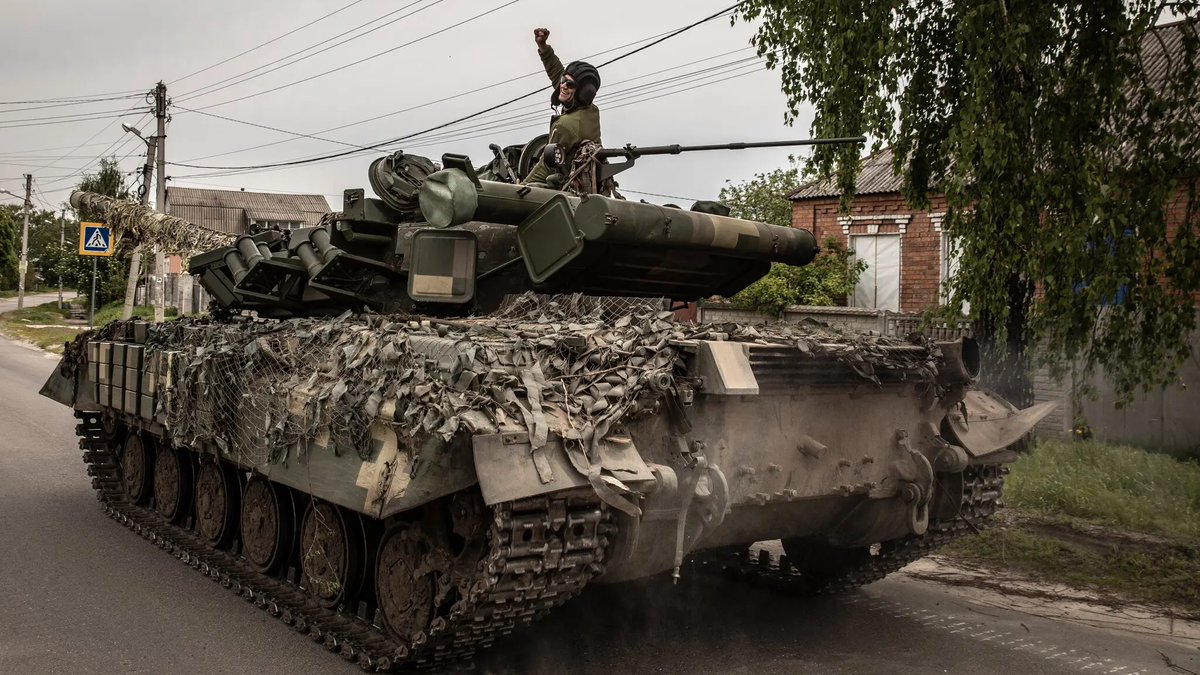
Today, an examination of the Ukrainian strategy of 'corrosion', that - so far - has seen it successfully fend off a larger and (theoretically, at least) more powerful invader. 1/25 

2/ Throughout their Ukraine campaign, Russia’s military has been forced to continually re-assess its strategic objectives. The Russian Plan A - seize Kyiv, Kharkiv and other key points, capture government leaders and force a political accommodation – failed. 

3/ Plan B for the Russians - a multi-axis attacks in the south, east, northeast, north & in the skies above on a slower timetable – also failed. They then shifted to the Donbas and the creation of a ‘land bridge’ from Russia to Crimea.
4/ Since February, Russia has constantly downgraded their political goals for Ukraine & the strategy for achieving them. This is not unusual in warfare. While political objectives shape how war is conducted & what battles are fought, so too do battles change political objectives.
5/ As American strategist Eliot Cohen recently wrote, “retaining a sense of direction in war is a constant struggle for political and military leaders at the top, and so the staff officers are doomed to frustration.” theatlantic.com/ideas/archive/…
6/ The Ukrainians have not suffered from a similar level of shifting objectives. Perhaps, as the defender, their goals are simple – defend their sovereignty, their people, and their land.
7/ Although, more recently, the notion of victory over Russia has crept into the strategic discourse, the simple recipe of Ukrainian political objectives continues to hold true.
8/ With their political masters being consistent in the political goals for the war, the Ukrainian military have also demonstrated consistency throughout this war. They have been consistently successful in defending their land.
9/ The Ukrainians have achieved this through the adoption of a simple military strategy: corrosion. The Ukrainian approach has embraced the corrosion of the Russian physical, moral, and intellectual capacity to fight and win in Ukraine. smh.com.au/world/europe/t…
10/ They have done this on the battlefield, and they have done it in the global information environment. This strategy of corrosion sees Ukraine attacking the Russians where they are weak, while also using some of their combat power to delay Russian combat forces.
11/ British military historian and theorist, Basil Liddell Hart described this as the indirect approach. He wrote writes how “effective results in war have rarely been attained unless the approach has had such indirectness as to ensure the opponents unreadiness to meet it.”
12/ The Ukrainians have taken this advice to heart. They have attacked the weakest physical support systems of an army in the field – communications networks, logistic supply routes, rear areas, artillery and senior commanders in their command posts.
13/ In the Battle for Kyiv, Ukraine was able to fight the Russians to a standstill because they were able to penetrate Russian rear areas and destroy parts of their logistic support. They corroded the northern Russian expedition from within, and forced its ejection from Ukraine.
14/ In the east, the Ukrainians have again adopted this strategy of corrosion. They are attacking Russian logistics, even though the Russians have moved more cautiously.
15/ The Ukrainians have also attacked critical enabling capabilities such as engineers, surveillance drones, fuel depots and senior Russian commanders. Once again, the Ukrainians have corroded from within the physical capacity of the Russians to fight. washingtonpost.com/world/2022/03/…
16/ These acts in the physical world are impacting on the moral & intellectual components of Russian fighting power. Russian morale is being corroded because of its battlefield defeats, supply challenges and withdrawals in the face of Ukrainian pressure at Kyiv and Kharkiv.
17/ Ukrainian use of social media, showing off Russian deficiencies, has magnified this moral corrosion. The corrosion in morale has resulted in declining battlefield discipline, with Russian desertions, battlefield refusals and war crimes. 

18/ Bad morale and discipline, if not addressed, can become endemic in an Army. The Ukrainians have slowly corroded Russia’s will to fight. Another major battlefield setback could result in a total collapse in Russian morale.
19/ The Ukrainians have also forced on the Russians a form of intellectual corrosion. Under pressure to achieve some form of victory due to previous setbacks, the Russians are taking greater tactical and operational risks with their military operations.
20/ The disastrous assault river crossing over the Severskyi Donets – where at least a Russian Brigade had its combat capability destroyed - is indicative of an Army that is becoming less capable of assessing the risks of significant operational or tactical decisions. 

21/ The Ukrainian consistency in implementing their strategy of corrosion now sees the Russian Army approaching its high-water mark in Ukraine. And in corroding the Russians physically, morally, and intellectually from within, the Ukrainians have evolved the military art.
22/ Conventional ground and air operations have absorbed special operations forces and information operations into a new, unified whole.
23/ What we once understood as separate conventional, unconventional, or information operations are now components of an integrated and indivisible approach.
24/ This is what 21st century warfare looks like. The Ukrainians have proved to be masters of it. There is much that every mid-sized country with limited resources (including my own) can learn from them. End 

25/ Thanks to @IAPomerenko @MarQs @UAweapons @defenceHQ @RALee85 @Kozatsky_D @HN_Schlottman @war_mapper @Blue_Sauron, whose images I used in this thread.
• • •
Missing some Tweet in this thread? You can try to
force a refresh






